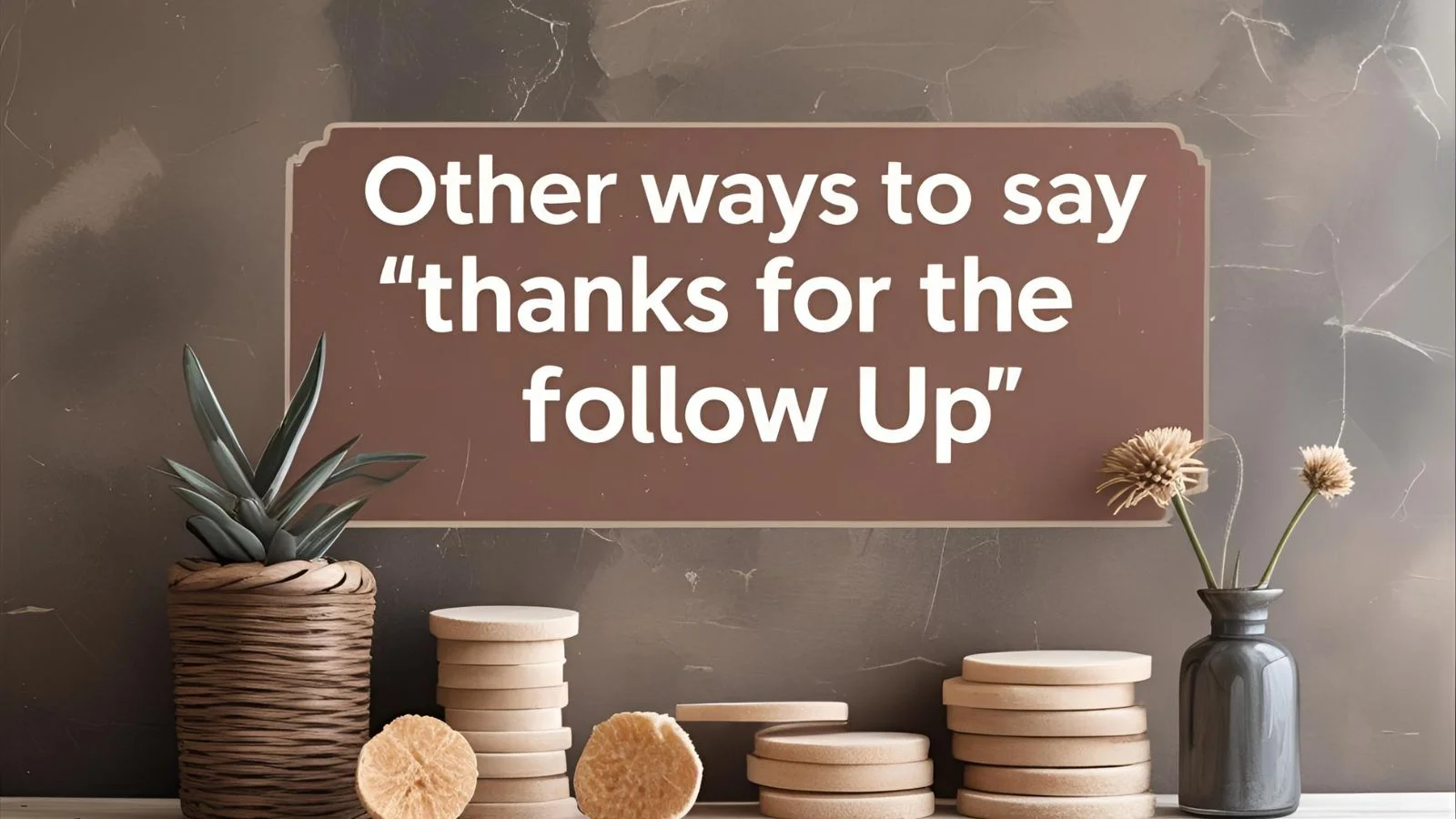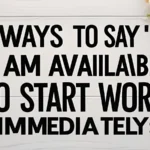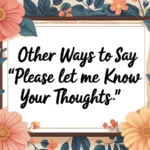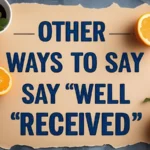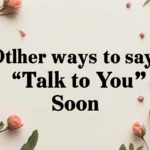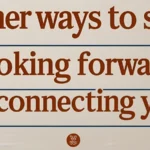Expressing gratitude in professional settings is essential, especially when someone follows up with you. While “Thanks for the follow-up” is a common and polite phrase, there are numerous alternatives that can convey the same sentiment with different tones. Depending on the situation, a personalized message can leave a more lasting impression. Whether you want to sound formal, casual, or even a little humorous, there’s always a suitable way to show your appreciation. Other Ways to Say “Thanks for the Follow Up”.
This article will explore different ways to say “Thanks for the follow-up,” giving you more options for every scenario. By diversifying your expressions of gratitude, you can engage more meaningfully with colleagues, clients, and others in your network. So, let’s dive into various creative and professional alternatives that can improve your communication style while maintaining politeness and clarity.
Appreciate Your Timely Response
When someone reaches out to you and takes the time to follow up, you might want to acknowledge their effort promptly. Instead of saying the usual “Thanks for the follow-up,” you could opt for “I appreciate your timely response.” This phrase not only thanks the person but also highlights their efficiency. It’s especially useful in professional settings where time is critical. Showing that you value someone’s promptness can build positive rapport and make them feel respected for their effort.
Whether in an email or in person, this phrase works well when you need to keep the conversation flowing efficiently. It’s a clear, polite way to acknowledge that the person’s action has been noted and appreciated, making it a versatile addition to your communication toolbox.
Read More: Other Ways to Say “Please Let Me Know Your Thoughts”
Grateful for Your Continued Engagement
Sometimes, a follow-up is part of an ongoing conversation or project. In these cases, saying “Thanks for your continued engagement” can be a thoughtful alternative. This expression shows your appreciation not just for the follow-up itself but for the person’s ongoing commitment to the conversation. It emphasizes that you recognize their ongoing effort, which is important when the exchange is long-term or collaborative.
This phrase is especially effective in professional and academic environments, where continuity is key to successful projects or relationships. By using this variation, you can show that you value the consistency and dedication of the person following up with you, reinforcing their positive behavior.
Thank You for Reaching Out Again
If the person has followed up after an initial contact, saying “Thank you for reaching out again” is a great way to acknowledge their persistence. This phrase is particularly useful when the person has gone out of their way to remind you about something or provide further information. It’s a courteous way to let them know you haven’t forgotten about their earlier message and that you value their effort to stay in touch.
It can also convey that you are aware of the ongoing communication and are grateful for it. This expression works well in both formal and informal settings, especially when you want to acknowledge their initiative and efforts without sounding overly formal.
Appreciate Your Follow-Through
“Thanks for following through” is another excellent alternative, particularly when the follow-up involves taking action or ensuring something is completed. This phrase is perfect for situations where the person has been responsible for ensuring a task or project moves forward.
It acknowledges their reliability and responsibility, reinforcing positive behaviors. Using this expression can be especially effective in work environments where accountability and commitment are valued. When someone takes the time to follow through with their promises, acknowledging it in this manner can help foster a sense of trust and appreciation in your relationship.
Thank You for Your Patience
In situations where the follow-up might involve waiting or delays, expressing gratitude for someone’s patience can be a thoughtful approach. You can say, “I appreciate your patience during this process.” This phrase not only acknowledges the follow-up but also shows your recognition of the person’s understanding throughout any delays.
It’s particularly useful when the follow-up involves waiting for responses or updates on projects. By expressing gratitude for their patience, you highlight their understanding and cooperation, which can help strengthen the relationship and encourage further collaborative efforts. This phrase is ideal in both professional and personal contexts when delays or waiting are involved.
Thanks for the Update
When the follow-up involves providing new information or updates, “Thanks for the update” is a simple but effective way to show your gratitude. It acknowledges that the person has taken the time to share important information and that you value their input. Whether it’s a project update, status report, or just an informal check-in, this phrase works well in keeping conversations efficient and on track.
It is especially useful in professional or work-related contexts, where keeping each other informed is essential. Saying “Thanks for the update” conveys that you are attentive to the details and appreciate the communication, without the need for excessive elaboration.
Thank You for Getting Back to Me
If someone has returned your message after some time, saying “Thank you for getting back to me” is a polite and friendly alternative. This phrase is often used in casual and formal conversations alike, expressing appreciation for the person’s response after a period of time. It can also show that you value their effort to reconnect, regardless of any delays.
This expression can be particularly useful when the follow-up pertains to a request or an inquiry, reinforcing the idea that you are grateful for the time and effort they invested in getting back to you.
I Appreciate You Checking In
“I appreciate you checking in” is a warm and friendly way to acknowledge someone’s follow-up, especially when the person is inquiring about your well-being or the status of something. This phrase works well when the follow-up is more of a personal touch or check-in rather than a formal business-related matter.
By using this expression, you show that you value the person’s effort to keep in touch, whether it’s for work-related or personal reasons. It communicates care and shows that you don’t take their effort to reconnect for granted, making it an ideal choice for more informal communication.
Grateful for Your Attention to This Matter
In more formal or professional environments, “I’m grateful for your attention to this matter” is a great alternative to express appreciation for a follow-up. This phrase works particularly well when the follow-up pertains to important tasks, deadlines, or issues that require serious consideration. It not only thanks the person for their follow-up but also recognizes the importance of the matter at hand.
This expression helps convey a sense of professionalism while maintaining respect for the other person’s time and focus. It can be used in business emails, meetings, and other professional communications where acknowledgment of a matter’s importance is needed.
Thank You for Your Efforts
If the follow-up has involved effort on the part of the other person, expressing gratitude for their efforts can be a thoughtful alternative. “Thank you for your efforts” acknowledges that the person has put time and energy into their follow-up. This phrase is particularly fitting in situations where the person has gone above and beyond to assist or provide you with the necessary information.
It shows your appreciation for their dedication and commitment, creating a sense of value for their input. This expression can be used in both formal and informal contexts, allowing you to acknowledge someone’s efforts in a polite and appreciative manner.
I’m Grateful for Your Support
If someone has followed up with you in a supportive manner, either by offering help or guidance, “I’m grateful for your support” is a great way to express your thanks. This phrase is particularly useful in situations where the follow-up has been more than just informational—it has involved offering assistance or encouragement.
It’s ideal for professional environments where teamwork and mutual support are crucial, as well as personal situations where someone has lent their time or expertise. Using this phrase conveys that you value the person’s input and are thankful for their willingness to support you.
I Appreciate Your Follow-Up on This
A direct and professional way to acknowledge a follow-up is to say, “I appreciate your follow-up on this.” This phrase is simple, clear, and effective, especially when you want to convey gratitude in a straightforward manner. It’s a neutral option that works well in both formal and informal contexts.
This expression is useful when you want to avoid over-complicating the conversation, while still expressing thanks for the follow-up. It’s especially appropriate when the follow-up is about a specific task or issue, letting the other person know that their effort has been noticed and appreciated.
Thank You for Keeping Me in the Loop
If the follow-up involves providing you with additional information or keeping you updated on something, “Thank you for keeping me in the loop” is an excellent alternative. This phrase works well in situations where communication is ongoing and the person has made an effort to keep you informed. It shows that you value the information provided and that you appreciate being kept up to date. This phrase is particularly useful in business environments, where staying informed is critical to decision-making and collaboration. It’s a friendly and professional way to acknowledge someone’s effort to keep you in the loop.
Conclusion
In conclusion, finding creative ways to say “Thanks for the follow-up” can enhance your communication skills and make your messages stand out. Whether you want to sound formal, casual, or appreciative, the alternatives provided in this article offer a variety of options for different situations.
By diversifying your gratitude expressions, you create a more engaging and respectful dialogue, leaving a positive impression on those you communicate with. By showing appreciation in unique ways, you can strengthen your relationships and enhance both professional and personal interactions.
